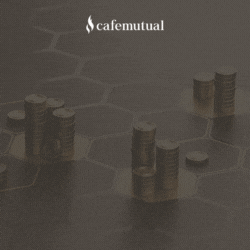Benchmark share indices have plunged from its record high in a month. Given the covid-19 threat, how do you see room for correction? Do you think that the current valuations are attractive enough to steady the Sensex?
We do not expect more correction as current prices already reflect the worries related to covid-19. It will be a fair assumption that the disruption from covid-19 will be limited to short to medium term, and thus the issue will not be there one year down the line. Another important factor is that markets were reasonable even before the covid-19 issues, so the correction should be limited.
What is your view on the valuations in each segment of the market – large, mid and small cap stocks?
We continue to have preference for large cap and would advise investors to allocate at least 70% towards large or multicap funds. Our preference for large companies is due to multiple factors – (a) Many sector leaders have now corrected and thus the space is cheap given that the large caps also have significant headroom to grow; (b) Large franchises have better ability to weather challenging times such as the covid-19 pandemic.
Many sectors have turned attractive after the recent correction. How have you changed your sectoral weightage?
Post correction, it is not about which particular sector is attractive. We believe that valuation is favourable across sectors. First priority is to buy high quality businesses, which have now corrected and are attractive.
The other spectrum is to participate in “deep in value” businesses like government entities in utilities. In our view, these stocks were cheap even before the coronavirus crisis and now they have become even more attractive.
What category of funds should MFDs recommend to their clients? Is a staggered approach towards equity funds advisable at this point?
These are indeed unprecedented times and it is important to maintain asset allocation discipline. Considering the sharp equity market correction, it is fair to assume that the percentage allocation in equities has come down due to fall in value. We advise investors to re-balance and increase the equity exposure to the maximum permissible as per individual allocation.
Current valuation provides an excellent opportunity to increase equity weights through well-managed mutual funds. For example, if an investor had a 70:30 equity-debt allocation which after the correction has become say 50:50, clients should rebalance it back to 70:30, based on their risk profile.
- We would recommend investors to look at equities and allocate capital which is not required for next 3 years
- In this context, for allocations in large caps, we would recommend investing about 50% lump sum and remaining to spread over the next few weeks.
- For others, SIPs and STPs are the most efficient way of capturing the volatility/downside
Existing investors should not look at point-to-point returns of the last 1 year which are significantly negative today. The decision should be made by quantum available from asset allocation. We are of the firm view that most of the current losses are quotational, and will be recouped over time, most likely in next one year.
What has been the price-earnings ratio of Sensex stocks in FY20? What change do you expect in the next few quarters?
Based on consensus earnings P/E is 17x for Sensex. We would like to highlight two things regarding P/E multiple – one, the denominator i.e. earnings is low compared to average and two, interest rates are low. It is not possible to forecast next quarter earnings as covid-19 impact is still unknown given the evolving situation. From the market's viewpoint, it is important to look at covid-19 as a “one off event” which at best would impact one year of earrings. In this context, P/BV would be a better measure for valuation, rather than P/E on immediate earnings. On P/BV Indian market is trading at 1.7x price to book, which is 10yr low.






